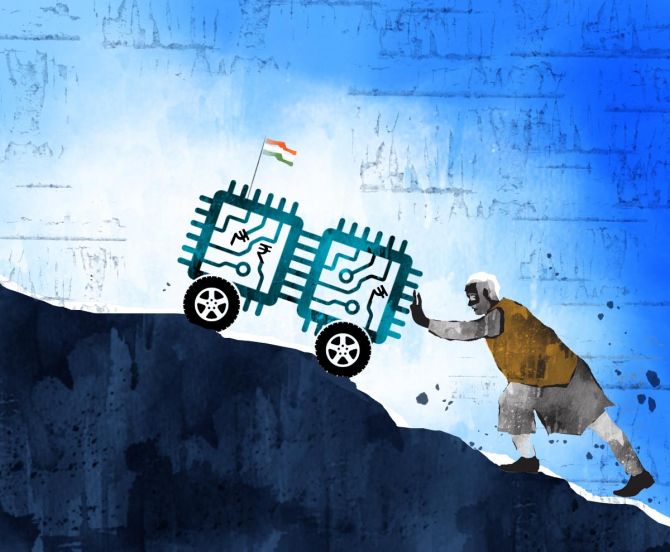Centre mulls strategy to ensure powers given to the agencies are not misused.

The Centre is taking a hard look at agencies responsible for implementing the ambitious production-linked incentive (PLI) scheme to ensure that the powers given to them are not misused, people aware of the matter said.
The PLI schemes, 14 in all, are being implemented through five project-monitoring agencies (PMAs) -- Industrial Finance Corporation of India (IFCI), Small Industries Development Bank of India (Sidbi), Metallurgical and Engineering Consultants (MECON), Indian Renewable Energy Development Agency (IREDA), and Solar Energy Corporation of India (SECI).
These entities, all government-owned, are nodal agencies responsible for providing 'managerial and implementation' support to the ministries rolling out their PLI schemes.
These also monitor key activities under the scheme, such as appraising applications, determining eligibility for incentives, monitoring the performance and progress of the schemes, and site visits.
PMAs are supervised by their ministries, to which they are answerable, one of the persons quoted above said.
The government's go-to policy think tank, NITI Aayog, is learnt to have raised concern that too much power has been given to the PMAs and it will ask ministries to ensure that there is no scope or space for corruption.
"The thinking among top government officials is whether too much power has been given to PMAs and if something can be done to ensure that it is not misused, there is no fraud or no company (applicant) is able to influence them for selection," the person quoted above told Business Standard.
"A strategy will be worked upon," the person said, adding that the broader idea was to ensure a scheme as big as the PLI was the government's priority and it should in no way fail.
This will ensure that the PLI is not caught up in a quagmire, especially after what happened in the case of the electric-vehicle subsidy scheme.
"The idea behind having PMAs for the scheme was mainly because ministries do not have the bandwidth and the capacity to watch each step on implementation," the person said.
Ajay Srivastava, former trade ministry official and founder of the Global Trade Research Initiative, a think-tank, said the government should ensure there should be uniform guidelines for PMAs.
"Before releasing the guidelines, there should be consultations with the beneficiaries of the PLI scheme. The guidelines should be broad in nature since the specific details have been defined in respective schemes," Srivastava said.
The Centre has allocated Rs. 1.97 trillion for the 14 sectors, including telecom, textile, automobile, white goods, and pharmaceutical drugs, which aim to not only make India a manufacturing powerhouse but also improve the cost-competitiveness of locally produced goods, create job opportunities, curb cheap imports, and boost exports.
However, even as the PLI scheme enters its third year in FY24, only close to Rs. 2,900 crore (Rs 29 billion) has been paid to beneficiaries as incentive.
By the end of the year, the Centre will evaluate if there is need for a "course correction" in sectors that have not seen substantial progress.
There will be a review meeting with stakeholders on June 27 to focus on those sectors and help in better utilisation of funds over two-three years.
Feature Presentation: Aslam Hunani/Rediff.com











